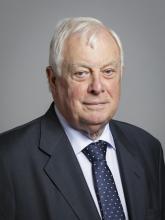You are here
Truth and democracy
Jul 03,2023 - Last updated at Jul 03,2023
LONDON — It has become something of a cliché in recent years to say that we live in a post-truth, post-fact age. In the United Kingdom, the Brexit referendum and the spectacular rise and fall of former prime minister Boris Johnson catapulted the crisis of truth to the forefront of political debate. In the United States, former president Donald Trump’s incessant falsehoods during his tumultuous term in office and his equally turbulent post-presidency continue to pose an unprecedented threat to the fabric of American democracy.
During his four years in the White House, the Washington Post estimated that Trump told 30,573 untruths — an average of 21 false claims a day. Of course, Trump capped his term with the most egregious lie of all: That he won the 2020 election. In reality, it was not even close. President Joe Biden secured 306 Electoral College votes and won the popular vote by more than seven million.
In Trump’s telling, millions of Biden votes were fabricated, and the presidential election was “rigged” by a grand conspiracy of the “deep state” and the Democratic Party. Although this conspiracy theory has been thoroughly debunked over the past two and a half years, the “stolen election” narrative remains immensely popular among Republican voters and will likely help propel Trump to the 2024 GOP nomination.
Johnson’s lies were far less grandiose than Trump’s. But his arms-length relationship with the truth ultimately caught up with him: His blatant misrepresentations to Parliament about breaking COVID-19 lockdown rules led to his downfall. It is important to note that the UK Parliament takes falsehoods especially seriously. For example, accusing another MP of lying is deemed unacceptable, because it is assumed that honorable men and women would never resort to such conduct.
But does honesty, or at least a genuine effort to be honest, still matter? Johnson, after all, is hardly the first British politician to lie. Certainly, the self-styled “big beasts” of UK politics have dabbled in deceit. But while some falsehoods are undoubtedly self-serving, some could be in the service of maintaining social harmony, a concept Plato and Socrates called the “noble lie”. For example, policymakers contemplating a currency devaluation will likely deny it to prevent speculative attacks.
To be sure, there are flaws to this reasoning. In 1956, for example, British Prime Minister Anthony Eden unequivocally lied to Parliament when he repeatedly insisted that the UK intervened militarily in the Suez Crisis solely to stop the fighting. In fact, the UK orchestrated the failed invasion of Egypt with France and Israel. Eden probably also lied to Queen Elizabeth II about this humiliating debacle. It is doubtful that these falsehoods genuinely served the public interest.
Nearly a half-century later, then-prime minister Tony Blair was, at the very least, economical with the truth about the reasons Britain entered the disastrous Iraq War. Blair, generally known for his integrity, would likely have justified this by arguing that it was important for the UK to support its American allies, even when intelligence appeared to have been manipulated to accommodate a pre-existing plan. While there may be some truth to this, the arguments for the invasion appear threadbare in retrospect.
Yet, as Immanuel Kant observed, truth and freedom are inextricably linked. This connection becomes especially apparent when comparing the conduct of authoritarian or totalitarian regimes to that of open democratic societies. In dictatorships, the leader propagates whatever narrative appears to support their actions. Dissent, of course, is not tolerated. In the absence of free speech, transparency, and political opposition, telling the truth was simply not part of these tyrants’ agendas.
This is also part of the reason why Russian President Vladimir Putin has managed to evade accountability for his “special military operation” in Ukraine, at least for the time being. Similarly, Chinese President Xi Jinping claims that the Uyghurs who are incarcerated in camps in Xinjiang are simply undergoing “reeducation” to prevent them from becoming terrorists. Like Napoleon, the porcine ruler in George Orwell’s Animal Farm, all dictators maintain a veneer of sincerity to mask their actions.
Open societies, on the other hand, thrive on press freedom, vigorous debate, and evidence-based policymaking. While liberal democracies do not always live up to this ideal, the understanding that this is how things should work, and that voters can remove leaders who transgress this expectation, is the source of their strength.
When liberal democracies lose sight of their core values, however, the institutional and intellectual checks and balances that underpin their existence inevitably deteriorate. Once lies become accepted as a normal part of political discourse, it is only a matter of time before demagogues exploit tolerance of falsehood. Sooner or later, courts are overruled, opposition parties are marginalized, and corruption becomes increasingly prevalent. Eventually, trust collapses, and the fabric of democracy unravels.
Chris Patten, the last British governor of Hong Kong and a former EU commissioner for external affairs, is Chancellor of the University of Oxford and the author of The Hong Kong Diaries (Allen Lane, 2022). Copyright: Project Syndicate, 2023. www.project-syndicate.org













